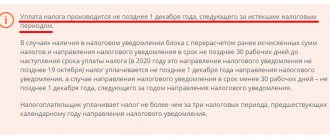In the verdict, the court is obliged to indicate reliable personal data of the convicted person, the qualifications of the crime, the event of the crime and the punishment imposed on the offender. Of enormous importance when deciding the type and amount of punishment is the personality of the perpetrator - his lifestyle, exemplary behavior before the crime or, conversely, outstanding criminal records. Everything is taken into account: availability of work, characteristics, dependent children and even pregnancy of the spouse, disability of a close relative, etc.
The judge, as it were, “sorts” the information that characterizes the person. Some of them are aggravating circumstances, others are mitigating; Moreover, both influence the assignment of punishment. In this article we will dwell in detail on the data resulting in a mitigation of punishment.
Mitigating circumstances are a chance to reduce the fine
If there are mitigating circumstances to reduce the tax fine, the amount of sanctions imposed on the inspection report can be reduced. The factors due to which they will be released from liability for committing an offense are defined in paragraph 1 of Art. 112 of the Tax Code of the Russian Federation. These include:
- difficult personal or family circumstances;
- threat or coercion;
- financial, service or other dependence;
- difficult financial situation physical the person held accountable;
- other circumstances that are recognized as such by the court or tax authority considering the case.
Conclusion: the law makes it possible to reduce the size of sanctions. But to do this, the entrepreneur needs to prepare and submit a petition for mitigating circumstances to the tax office at the place of registration.
Impact on the type and amount of punishment
Let's assume that there are several mitigating circumstances in relation to a person, plus there are petitions from different people for leniency. What kind of punishment will the court choose?
In such cases, the judge is required to apply Article 62 of the Criminal Code of the Russian Federation. According to this norm, the circumstances listed in Article 61 of the Criminal Code of the Russian Federation must be unconditionally taken into account by the court. In other words, the judge is obliged to “weigh” everything positive that concerns the personality of the defendant, and the crime itself that was committed by him. It is clear that the perpetrator of a brutal murder will not be given a suspended sentence due to excellent reviews from colleagues and good attitude towards children. Proportionality and reasonableness in assessing circumstances are the guidelines to which the Supreme Court of the Russian Federation draws the attention of the servants of Themis in its decisions.
Question: It turns out that there are no rules about how much punishment to assign to whom and how to take into account positive factors?
Yes, with the exception of several mitigating circumstances, the nature of which obliges the judge not to exceed 2/3 of the maximum punishment sanctioned by the article:
- confession;
- voluntary compensation for damage;
- active assistance in solving a crime, cooperation with the investigation;
- medical and other necessary assistance to the victim as a result of the crime.
Only these four circumstances (one of them or several at the same time) are the basis for imposing a sentence of no more than 2/3 of the maximum possible term.
Example No. 1 . Sokolov I.S. committed theft with entry into the premises, that is, paragraph “b” of Part 2 of Art. 158 of the Criminal Code of the Russian Federation (maximum punishment - up to 5 years in prison). He admitted guilt, wrote a confession during the investigation and compensated the victim for damages. The court considered it possible to assign Sokolov, taking into account mitigating circumstances, a sentence of imprisonment for a period of 2 years (it turns out that less than 2/3 of the maximum).
It should be noted that failure to comply with this rule and the imposition of a more severe punishment than 2/3 of the maximum entails the recognition of the sentence as illegal; in the appellate instance this is a 100% basis for canceling or changing the sentence with the imposition of a more lenient punishment.
An exception to the rule “no more than 2/3” is the presence of aggravating circumstances on the part of the convicted person (recidivism, committing a crime against a minor, being intoxicated at the time of the criminal act, etc.). If there is at least one aggravating criterion, the court has the right to assign more than 2/3.
Example No. 2 . Mironov K.E. committed robbery with the use of violence, that is, paragraph “g” of Part 2 of Art. 161 of the Criminal Code of the Russian Federation (maximum possible punishment - 7 years in prison). Mironov helped solve this crime and made amends for the harm caused. But this is not the only fact of criminal prosecution in his biography. Previously Mironov K.E. He had already been convicted of an intentional crime and was serving time in a colony for it. Since the court found signs of relapse (an aggravating factor) in Mironov’s actions, he was sentenced to 5 years in prison, that is, more than 2/3.
In recent years, the number of cases considered by courts under special proceedings (i.e., a shortened version of the examination of evidence in case of a full admission of guilt by the defendant) has been increasing. You can read more about this procedure in our article. In accordance with the Code of Criminal Procedure of the Russian Federation, a shortened version of the consideration of cases is possible for crimes for which no more than 10 years of imprisonment are provided. At the same time, the law guarantees a punishment not exceeding 2/3 of the maximum for a defendant who declares the case to be considered under such a procedure. If there is a confession or another circumstance entailing a mandatory mitigation of the sentence, the final term will be calculated according to the rule “2/3 of 2/3”.
Example No. 3 . Markov A.P. committed fraud under Part 3 of Art. 159 of the Criminal Code of the Russian Federation (maximum period of sanctions - 6 years). He wrote a confession to the investigator and declared a special procedure in court. Due to the fact that the case was considered in an abbreviated manner, it is necessary to count 2/3 of 6 years = 4 years (no more than this period can be assigned to Markov by the court due to the simplified procedure). Then, taking into account the confession, the court counted 2/3 of 4 years = 32 months, that is, 2 years 8 months (the final punishment with all benefits, the amount of which the court has no right to exceed). Markov was sentenced to 2 years and 6 months in prison.
Wording options for petitions
The following are usually indicated as mitigating facts:
- committing an offense for the first time;
- unintentionality of actions;
- impossibility of paying wages to employees due to the collection of a fine;
- the activity is unprofitable or seasonal;
- the organization is a bona fide taxpayer, etc.
If you are preparing a petition to the tax office to reduce the fine for late submission of reports, the following will be recognized as mitigating facts:
- disproportionate punishment to the nature and gravity of the offense committed;
- insignificance of delay;
- lack of intent to commit an offense;
- absence of negative consequences for the budget;
- a technical failure that prevented the report from being submitted on time;
- the fact of committing a violation for the first time.
IMPORTANT!
Regardless of what circumstances are cited, it is necessary to supplement the petition with copies of documents confirming the existence of the facts mentioned.
An example of how to write a petition to the tax office to reduce the fine
Forced labor
Currently, mitigation of a sentence of imprisonment is possible by replacing it with so-called forced labor - a relatively new type of punishment, which is not yet widespread in Russia.
Forced labor is provided for in Article 53.1 of the Criminal Code of the Russian Federation and consists in the fact that the convicted person is sent to a special correctional center where he works (instead of imprisonment). At the same time, from his salary to the state income is withheld from 5 to 20%. In a certain sense, this type of punishment is similar to correctional labor, but the difference between forced labor is that the latter is served in isolation.
Currently, mitigation of punishment by forced labor is used extremely rarely by judges (for 2021 - in relation to just over 500 convicts). This is explained by the fact that in Russia so far only 8 correctional centers and 15 isolated places in colonies have been created and are functioning, where such training is possible.
Replacing imprisonment with forced labor can only apply to convicts who have been sentenced to a term of no more than 5 years.
How much will the fine be reduced?
According to paragraph 3 of Art. 114 of the Tax Code of the Russian Federation, if there is at least one mitigating circumstance, the punishment is reduced by at least two times compared to the original amount. At the same time, the Plenum of the Supreme Arbitration Court of the Russian Federation, in paragraph 16 of Resolution No. 57 of July 30, 2013, indicated: in paragraph 3 of Art. 114 of the Tax Code of the Russian Federation establishes only a minimum limit for reducing sanctions. Based on the results of an assessment of the circumstances, the court has the right to reduce the amount of the penalty by more than half and even make it below the minimum amount (see letters from the Ministry of Finance of Russia No. 03-02-08/47 dated May 16, 2012 and No. 03-02-08/7 dated January 30 .2012).
However, neither the Federal Tax Service nor the court has the right to reduce the amount of sanctions to zero, since this is already an exemption from liability for the offense committed.
If there are mitigating facts, only the amount of penalties applied is reduced, but taxes and penalties cannot be reduced on these grounds.
Use the free guide from ConsultantPlus experts to correctly submit an application to the tax office and achieve a reduction in the fine.
The lawyer's request to replace the unserved part of the sentence with a more lenient punishment was granted
November 05, 2021 RESOLUTION
Copy
Yekaterinburg city
November 05, 2021
Judge of the Verkh-Isetsky District Court of Yekaterinburg Orlova T.M. with the secretary Kurokhtin A.S., with the participation of the assistant to the Sverdlovsk prosecutor for the supervision of compliance with laws in correctional institutions Abdullaev S.S., the representative of FKU IK-2 of the GUFSIN of Russia for the Sverdlovsk region Vatrushkin M.V., convicted <data taken>. through video conferencing, lawyer Ilchenko E.V., having considered the petition against the convicted person in open court
<data taken>, in Nizhnevartovsk,
born <data taken>
on replacing the unserved part of the sentence with a more lenient punishment,
installed:
by the verdict of the Nizhnevartovsk City Court of Khanty-Mansi Autonomous Okrug-Yugra dated April 16, 2018 <data taken> was found guilty of committing a crime under Part 3 of Art. 30, paragraph “g”, part 4, art. 228.1 of the Criminal Code of the Russian Federation.
The term of serving the sentence begins on April 16, 2018, the end of the term
-11/23/2021. The unserved sentence is 01 year 18 days.
Lawyer Shestakov O.I. filed a petition in the interests of the convicted person <data taken> to replace the unserved part of the sentence with a more lenient punishment, indicating that <data taken> was convicted as a minor, has no existing penalties, was rewarded five times, is characterized positively by the administration of the correctional institution , admitted guilt in committing the crime and repented of his deeds.
The convicted person <data taken>, as well as lawyer E.V. Ilchenko participating in the court hearing on behalf of the convicted person. the arguments set out in the petition were supported in full and asked to be granted.
According to a representative of the administration of the correctional institution, the convicted person <data taken> is characterized positively and it is advisable for him to replace the unserved part of the sentence with a more lenient form.
The participating prosecutor objected to granting the request,
referring to the instability of the convicted person’s behavior throughout
serving the sentence.
Having examined the presented materials and listened to the opinions of the participants
process, the court comes to the following conclusion.
According to Art. 80 of the Criminal Code of the Russian Federation, for a person serving a sentence of imprisonment, the court may replace the remaining unserved part with a more lenient type of punishment. When resolving this issue, the court must take into account information about the personality of the convicted person, his attitude to work and study while in a correctional institution.
According to the meaning of the law, the court’s conclusion that the remaining unserved part of the sentence can be replaced with a milder form must be based on a set of objective data indicating stable law-abiding behavior of the person serving the sentence.
As established at the court hearing, <data withdrawn> admitted guilt by the court verdict, served more than 2/3 of the sentence imposed, is characterized positively by the administration of the correctional institution, was employed as an assembler of double-glazed windows, while serving his sentence, received the specialty of seamstress, carpenter, activities attends educational activities, reacts positively to them, has five incentives, has no existing penalties, builds relationships in the group of convicts correctly, does not enter into conflict situations, maintains contact with relatives. He is polite and tactful in dealing with administration representatives. Issues regarding household and work arrangements for convicts are resolved. From 02/27/2020 he was transferred to lighter conditions of serving his sentence.
The court takes into account that the convicts received 4 penalties in the period from 06/09/2018 to 12/14/2018, all in the form of a reprimand, but notes that 14.1 after the last penalty, the convict demonstrated persistent positive behavior, expressed in the absence of penalties, the receipt of five incentives, Moreover, such a trend in changes in the behavior of the convicted person can be traced over a long period of time - 2021, 2021, which also served as the basis for transferring <data taken> to lighter conditions of serving the sentence.
The court does not see any specific data that negatively characterizes the convicted person <data taken> and indicates that he has not taken the path of reform. At the same time, the court takes into account that “data withdrawn” is not released from serving the sentence as such, but will continue to serve a sentence of another type, during which he must prove his correction by his exemplary behavior.
Thus, taking into account the personality of the convicted person, his behavior during the period of serving his sentence, the opinion of the administration of the institution, the court comes to the conclusion that “data withdrawn” does not need to serve the full sentence of imprisonment for his correction and it is advisable for him to replace the unserved period for corrective labor.
Based on the aforesaid and guided by Article. 80 of the Criminal Code of the Russian Federation, art. 175 PEC
RF, Art. Art. 397-399 Code of Criminal Procedure of the Russian Federation, court
decided:
The petition of lawyer O.I. Shestakov in the interests of the convicted person <data taken> to replace the unserved part of the sentence with a more lenient type of punishment is granted.
Replace <data taken>, unserved by the verdict of the Nizhnevartovsk City Court of Khanty-Mansi Autonomous Okrug-Yugra dated April 16, 2018, part of the sentence of 01 year 18 days of imprisonment with correctional labor for a period of 01 year 18 days with the deduction of 10% of wages to the state income, “ with serving in places determined by local government bodies in agreement with the body executing the sentence in the area of residence of the convicted person.
Based on paragraph “c” of Part 1 of Art. 71 of the Criminal Code of the Russian Federation to credit the convicted person <data taken> for the period of serving the sentence in the form of correctional labor, the time of serving the sentence in the form of imprisonment in the period from 05.11.2020 to the day of his actual release from PKU IK-2 of the GUFSIN of Russia in the Sverdlovsk region, at the rate of one a day of imprisonment for three days of correctional labor.
The decision can be appealed to the Sverdlovsk Regional Court through the Verkh-Isetsky District Court of Yekaterinburg within 10 days from the date of its issuance, and by convicted persons - within the same period from the date of delivery of a copy of the decision.
Presiding Officer COPY IS CORRECT Signature
T.M. Orlova
Services of the firm's lawyers for parole and sentence commutation
Prices for lawyer services for this category of cases can be found here.
When to Apply for Mitigating Circumstances
Most often, taxpayers remember and declare mitigating circumstances in complaints filed after the inspectorate has made a decision to prosecute. And they often get rejected.
At the same time, the duty of the tax authorities to identify mitigating (and aggravating) circumstances during the consideration of tax audit materials is provided for in subparagraph 4 of paragraph 5 of Article 101 of the Tax Code of the Russian Federation.
The Federal Tax Service indicated this on its website.
The Federal Tax Service recommends that taxpayers contact the inspectorate with a request to reduce penalties and supporting documents already at the stage of reviewing tax audit materials.
In addition to objections to the tax audit report, the taxpayer has the right to declare the presence of circumstances mitigating liability. This is possible when the taxpayer agrees with the fact of the offense he committed, but wants to reduce the amount of the fine.
You can submit a petition in the general manner, as well as objections to an inspection report - within a month from the date of receipt of the inspection report. The application must be accompanied by documents (copies thereof) confirming the presence of mitigating circumstances.
Having considered the materials of the audit, including a request for the presence of circumstances mitigating liability, the head of the tax inspectorate or his deputy, by decision, may:
- bring a company or entrepreneur to tax liability;
- refuse this;
- appoint additional tax control measures within a period not exceeding one month.
If the inspection considers your mitigating circumstances to be justified, it will reduce the accrued fine. And this will end up in the verification decision.
Features of note design
The memo can be drawn up on a regular A4 sheet. It should contain this information:
- Company name.
- Full name of the originator and recipient.
- Request to remove the penalty.
- Details of the order on the basis of which the employee was punished.
- Grounds for early removal of foreclosure.
The document must bear the signature of the note writer. The latter is not an administrative document. Having considered it, the manager can make either a positive or negative decision.







